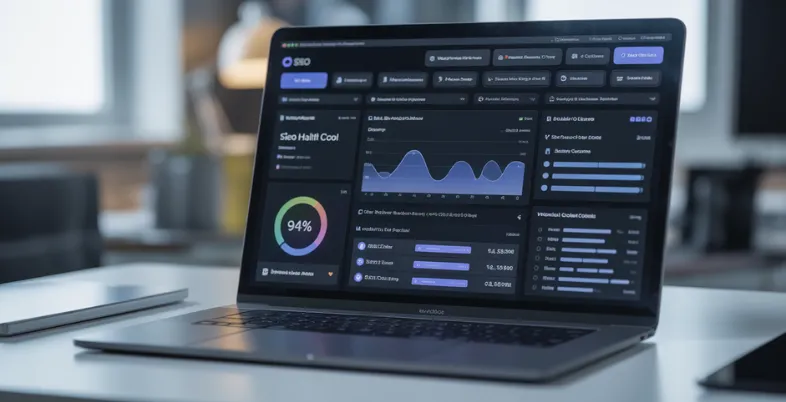Search Engine Optimization (SEO) is one of the most effective digital marketing tools for real estate professionals. At the center is real estate SEO keyword strategy, the exact words and phrases that potential buyers and sellers type into Google when searching for homes, neighborhoods, and local services.
By understanding and targeting the right real estate SEO keywords, agents and brokers can increase their online visibility, generate quality leads, and position themselves as trusted experts in their markets.
Why Real Estate Keywords Matter
The home buying journey almost always begins online. A buyer might start with a broad search such as “homes for sale in Dallas” and eventually refine it to “3 bedroom homes in Plano under 500k.”
Sellers might look for terms like “how much is my house worth” or “best realtor near me.” Each of these searches represents an opportunity for a real estate professional to appear in front of motivated clients.
Without keyword research and optimization, even the best-designed website may remain invisible.
Types of Real Estate SEO Keywords
There are several categories of keywords that matter most in real estate, each with unique examples.
Location-based keywords
These are the bread and butter of real estate SEO. They match directly with how buyers search for properties in a specific area.
Examples include:
- homes for sale in Miami Beach
- Austin condos for rent
- luxury homes in Beverly Hills
- new homes in Charlotte NC
- waterfront homes in Cape Coral
Long-tail keywords
These are more detailed phrases that capture buyers and sellers deeper in the decision process. They often have less competition and higher conversion rates.
Examples include:
- new construction homes in Scottsdale with pool
- 3 bedroom homes in Plano under 500k
- pet friendly apartments in Chicago near train
- modern townhomes in Raleigh with garage
- energy efficient homes in Denver suburbs
Informational keywords
These capture the research phase of a client’s journey. While not always immediate leads, they bring in valuable traffic and establish credibility.
Examples include:
- how to buy a house with bad credit
- average closing costs in California
- best schools in Orlando neighborhoods
- what is earnest money in real estate
- first time home buyer programs in Texas
Transactional keywords
These are high-intent searches that show readiness to act. Optimizing for these terms connects you directly with clients who are ready to move forward.
Examples include:
- real estate agent near me
- list my home in Denver
- best realtor in Tampa
- top real estate agents in Phoenix
- sell my house fast Houston
How to Find the Right Keywords

Effective keyword research starts with understanding your audience. Tools like Google Keyword Planner, SEMrush, or Ahrefs can show search volume, competition, and related phrases. Realtors should also analyze competitor websites and pay attention to autocomplete suggestions in Google search.
Another overlooked method is talking directly with clients about what they typed into Google when they first started their search. Many successful agents build keyword lists around their most common client questions.
Using Keywords on Your Website
Once you know your target keywords, they need to be implemented carefully. Primary keywords should be placed in titles, meta descriptions, headers, and page content in a natural way.
Each neighborhood or community you serve should have its own dedicated page optimized for that location’s terms.
Blog posts are perfect for targeting informational and long-tail keywords. For example, an article titled “Closing Costs in Dallas Explained” naturally targets both informational and location-based searches. Listing descriptions, image alt tags, and even video captions can be optimized as well.
Common Mistakes to Avoid
Many agents make the mistake of stuffing keywords into content, which reads poorly and can hurt rankings. Another common error is targeting only broad phrases like “real estate” or “homes for sale” without narrowing to local markets.
Ignoring mobile optimization is also a major oversight, as most property searches now happen on smartphones. The goal is always balance: enough keyword usage to signal relevance, but not so much that it damages readability.
Ready-to-Use Real Estate SEO Keyword Template
| Keyword | Type | Search Intent |
| homes for sale in Miami Beach | Location-based | Buyer property search |
| Austin condos for rent | Location-based | Buyer property search |
| luxury homes in Beverly Hills | Location-based | Buyer property search |
| new construction homes in Scottsdale with pool | Long-tail | Buyer specific need |
| 3 bedroom homes in Plano under 500k | Long-tail | Budget-focused buyer |
| pet friendly apartments in Chicago near train | Long-tail | Lifestyle preference |
| how to buy a house with bad credit | Informational | Buyer education |
| average closing costs in California | Informational | Buyer/Seller research |
| best schools in Orlando neighborhoods | Informational | Family decision-making |
| real estate agent near me | Transactional | High-intent client |
| list my home in Denver | Transactional | Seller lead |
| best realtor in Tampa | Transactional | Client-ready inquiry |
| sell my house fast Houston | Transactional | Urgent seller intent |
Local SEO and Keyword Targeting
One of the most powerful ways to dominate in real estate search results is through local SEO. Search engines reward content that is highly relevant to a specific geographic area. For agents, this means optimizing not just for broad city names, but for smaller neighborhoods, subdivisions, and even landmark-driven searches.
A buyer searching “homes near Disney World Orlando” is very different from someone typing “downtown Orlando condos.” Both queries signal intent, but the keywords are hyper-localized to different client needs.
Agents who invest in building pages around these micro-markets often find themselves ranking faster and with less competition. Localized keyword targeting also positions you as the neighborhood expert.
Beyond homes for sale, think about adding lifestyle-oriented terms such as “best parks in Summerlin” or “restaurants in South Tampa.” These searches draw in potential buyers who are still in the research stage but may convert once they decide on a community.
The Role of Keyword Intent
Not all keywords are created equal. Understanding keyword intent is critical for maximizing SEO results. Informational intent keywords bring awareness-stage visitors, while transactional intent keywords bring ready-to-act clients.
In between lies navigational intent, where someone may be searching for a specific company, such as “Zillow homes” or “Redfin agent.”
A balanced SEO strategy includes a mix of all three. Informational keywords help fill the top of the funnel and build authority, while transactional ones capture clients at the bottom who are ready to buy or sell.
If your website focuses only on one type, you miss opportunities along the client journey. By mapping content to each intent stage, you can guide visitors from initial research to hiring you as their agent.
Long-Term Keyword Growth Strategies
SEO is not a one-time project but an ongoing effort. Keyword trends change as markets evolve. A neighborhood that was once overlooked may suddenly become popular, shifting search demand. Similarly, rising interest rates or new loan programs can create new informational searches overnight.
One long-term strategy is to continually refresh older content with updated keywords. A blog post written two years ago about “new homes in Austin” may now rank lower if it has not been updated with current builder communities or market trends.
By revisiting and optimizing past content, you maintain rankings and keep your site relevant.
Another long-term tactic is creating cornerstone content. These are in-depth guides that target broad clusters of keywords, such as “complete guide to buying a home in San Diego.” Cornerstone content attracts backlinks, drives high traffic, and can serve as the foundation for smaller, related articles.
Keywords and Content Diversity
Real estate SEO is not limited to written articles. Keywords can and should be applied across different content formats. Video tours uploaded to YouTube can rank in Google search when optimized with location-based keywords in the title and description. Podcast episodes discussing “how to invest in rental properties in Dallas” can capture keyword-rich traffic from platforms beyond Google.
Even image file names, such as “miami-beach-condo-living-room.jpg,” contribute to SEO when tagged with descriptive, keyword-based labels.
By diversifying your content types, you increase the chances of reaching clients where they spend their time. Some buyers may prefer reading blog posts, while others watch videos or scroll Instagram. Using consistent keyword strategies across formats ensures you remain visible across multiple channels.
Measuring Keyword Success
The final piece of the puzzle is measurement. Without tracking, it is impossible to know which keywords bring results. Tools like Google Analytics and Search Console allow agents to see which terms drive traffic, how long visitors stay on site, and whether those visits lead to conversions.
Key performance indicators include organic traffic growth, click-through rate from search results, and lead form submissions.
If a page optimized for “homes for sale in Gilbert AZ” ranks well but produces no inquiries, you may need to improve the call-to-action. If an informational post brings in thousands of visitors but none convert, consider adding internal links to property pages.
Measuring results also highlights which content investments are most valuable. Instead of guessing, you can double down on keyword categories that perform best and expand into related terms. This data-driven approach turns SEO from a guessing game into a predictable lead-generation engine.
The Bottom Line
Real estate SEO keywords are more than just search terms; they represent the questions and needs of your future clients.
By choosing the right mix of location-based, long-tail, informational, and transactional keywords, and placing them thoughtfully across your website, you can significantly increase visibility and attract qualified leads.
In a competitive industry where every click counts, mastering keyword strategy can be the difference between being overlooked and becoming the go-to agent in your market.






